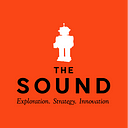“Let your inner beauty blossom!” “Be authentic!” “Embrace yourself!” These seemingly well-meaning Beauty & Wellness mantras sound like marketing clichés, right? Well, The Sound talked with 5,000 people across 4 markets and found out that they really do reflect people’s perception of beauty and it appears many beauty brands are listening.
But while people’s beliefs, and the marketing messages they hear, may be focused more and more on Inner beauty, society’s values have some catching up to do. Why, if people value Inner beauty does society still reward those with Outer beauty? Let’s take a closer look.
People place inner beauty above outer beauty
People put more stock in Inner beauty (who you are) over Outer beauty (how you look). And they are doing so in 3 key ways.
- How We View Ourselves:
People rate their own internal beauty higher than their external. In fact, hardly anyone (aside from those asshole narcissists) feels good about their Outer beauty without also feeling good about their Inner beauty
- How We Want Others to View Us:
People prefer to be complimented for ‘who they are’ over ‘how they look’. Our findings uncovered that overall qualities such as happiness, kindness, confidence, humor, and intelligence are more highly valued than the external appearance of your skin, the shape of your body, hairstyle or make-up.
- How We View Others:
Internal beauty matters more than looks when finding others attractive. 62% of people thinking that beauty or attraction comes from the inside and not the outside.

The beauty industry is catching on
The beauty industry is inherently one that creates products intended to transform, enhance or mask our external, physical features. However, as people’s beliefs shift towards the internal, we have seen the industry recognize the importance of inner beauty and shift their messaging to a more real, authentic, and human definition of beauty.
Companies have embraced that inner beauty affects outer beauty. There has been an increasing focus on sustainable products to overall living well. From the focus on feeling beautiful inside, at any age, emerged the boom of self-care products, supplements and simply daily yoga.
The messaging around beauty products, themselves, has also shifted.
- Back in 2004, Dove’s “Real Beauty” campaign widened the definition of beauty and encouraged women to embrace their natural selves.
- Tatcha, recently acquired by Unilever, was built around the ancient culture of Geishas: “Beauty begins in the heart and the mind, and that beauty is something that’s gained with age — not lost. When you are younger it’s at the surface, but as you get older it deepens and becomes intrinsic as your heart and mind become more beautiful.”
- Selena Gomez’s “Rare Beauty” brand is all about embracing inner beauty. “Being rare is about being comfortable with yourself.”
- Dermablend introduced a new perspective on makeup: “Blend in to stand out” suggesting that makeup covers imperfections so that women can reveal who they are inside.
Yet society still rewards the external
The idea of beauty is always shifting. Mainstream television, media outlets and social media have had us believing for years that only a select few are blessed with the gift of beauty. That their depiction of beauty is something we should aspire to. Influencer culture that perpetuates unrealistic images on Instagram is partly to blame for fueling this belief.
The shift to unfiltered images of celebrities and empowering slogans in ads may be surface-level gestures.
While people place more value on what’s on the inside, regardless of gender and age they still believe outward appearance fuels success.
Both men and women believe physical beauty drives success in life. This feeling peaks in people’s 50’s, many of whom may be in the height of careers.
And many people still feel expectations of beauty are unrealistic. This is significantly greater for women in general, but particularly among older generations. A fascinating point to be made, though, is that younger people feel those expectations are almost as unrealistic for men as women. Is that a function of their age and lack of ‘real-life’ experiences or are tides changing? And what does it infer about unrealistic expectations for men?
The Sound Musings
The definition of beauty will keep changing, but what will remain constant is that internal beauty really does matter over the external charm. For the beauty industry, is it just a new momentum? Will society catch up?
The beauty industry lives in the middle of individual/internal vs. society/external tension — their products are for the external, but their messaging is aimed at the internal. This begs the question, beyond changes in messaging, how can an inherently external industry authentically shift to one that is about internal beauty?
And if society continues to reward external beauty, will the pendulum swing back?
